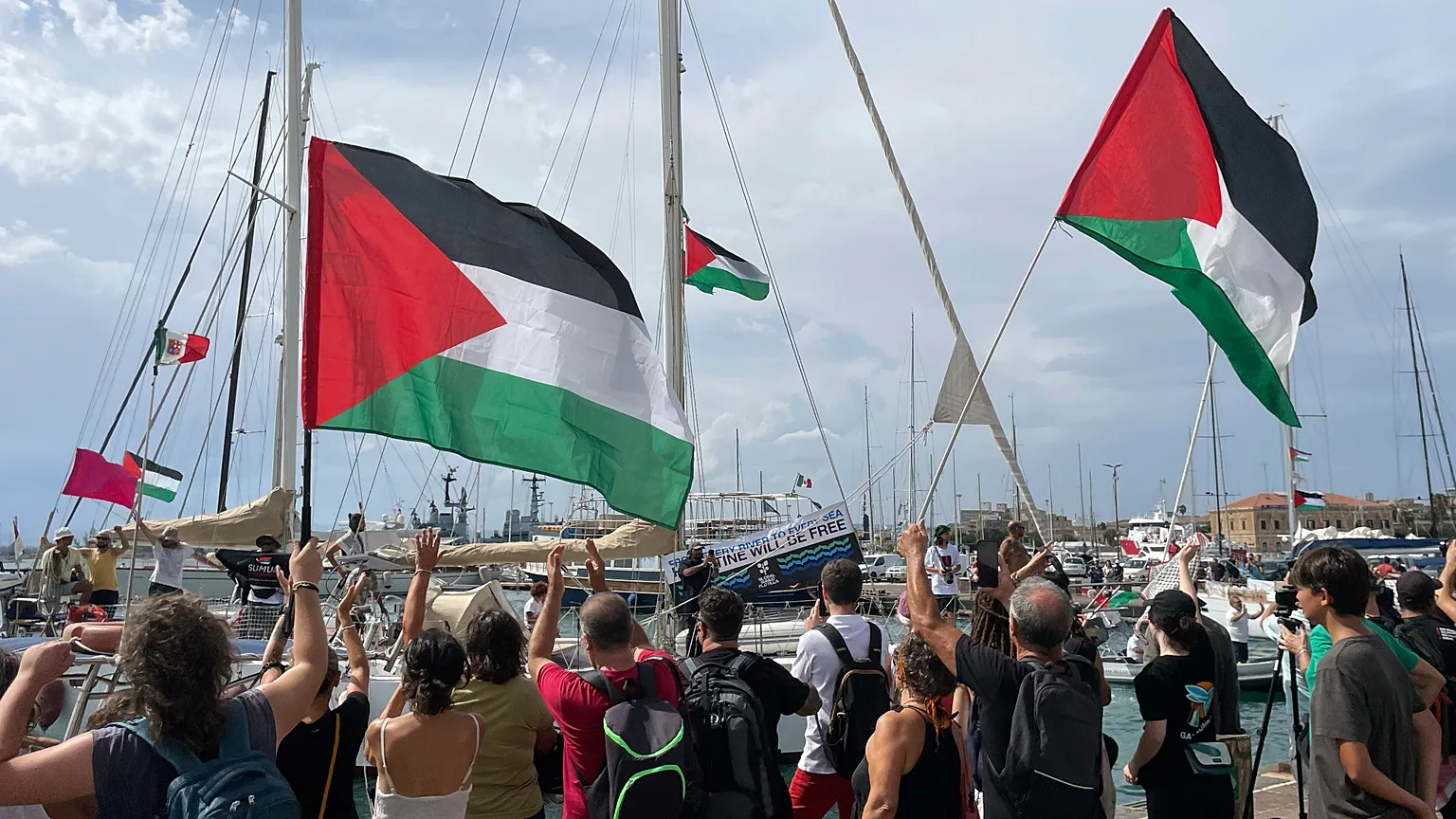Indirect negotiations on a proposed United States peace plan to end the Gaza war resumed on Tuesday in Egypt’s resort city of Sharm El-Sheikh, with delegations from Israel and Hamas holding separate meetings with mediators.
The discussions are aimed at laying the groundwork for a possible exchange that would see the release of Israeli hostages in return for Palestinian prisoners, raising hopes of progress toward ending the long-running conflict.
Palestinian and Egyptian officials said Monday’s opening session focused on “creating the field conditions” necessary for the exchanges.
A Palestinian official close to the talks told Reuters that the first meeting ended late Monday night and that more sessions were planned for Tuesday. State-affiliated Al-Qahera News also confirmed the continuation of the talks, describing the opening day as having ended “amid a positive atmosphere.”
The negotiations coincide with the second anniversary of the Hamas-led attack on southern Israel on 7 October 2023, in which about 1,200 people were killed and 251 taken hostage.
Israel responded with a military campaign that has since killed 67,160 people in Gaza, including 18,000 children, according to figures from the Hamas-run health ministry.
As officials gathered in Egypt, US President Donald Trump told reporters at the White House that the prospects for an agreement were promising.
“We have a really good chance of making a deal, and it'll be a lasting deal,” he said. He later added, “I really think we're going to have a deal,” and noted that Hamas had agreed to “some really important things.” On social media, he urged all parties to “move fast,” saying he had been told the first phase of the plan, which includes hostage releases, “should be completed this week.”
The 20-point plan, developed by Trump and Israeli Prime Minister Benjamin Netanyahu, outlines an immediate end to fighting and the release of 48 hostages, only 20 of whom are believed to be alive, in exchange for hundreds of detained Gazans.
Once both sides accept the plan, humanitarian aid is to be allowed into Gaza without delay. The proposal also stipulates that Hamas will have no role in governing Gaza and leaves open the possibility of an eventual Palestinian state.
Hamas has accepted some elements of the plan but has not responded to key conditions, including disarmament and its future role in Gaza.
In a statement on Friday, the group agreed “to release all Israeli prisoners, both living and dead, according to the exchange formula contained in Trump’s proposal,” provided proper conditions are met.
It did not directly endorse the full plan but reiterated its willingness to hand over administration of Gaza to a technocratic Palestinian body supported by Arab and Islamic countries. The group avoided mentioning its usual “red lines,” a move seen by many as the result of mounting external pressure.
Netanyahu has restated his opposition to the creation of a Palestinian state, saying in a video statement, “It’s not written in the agreement. We said we would strongly oppose a Palestinian state.”
International reaction to the peace plan has been largely supportive. United Nations Secretary-General Antonio Guterres described the proposal as “an opportunity that must be seized to bring this tragic conflict to an end.”
UK Prime Minister Keir Starmer said, “We welcome the US initiative towards peace in the Middle East, and this government will do everything in our power to bring about the day where every child of Israel can live peacefully, alongside their Palestinian neighbours, in safety and security.”
Iran, a longtime supporter of Hamas, has also signalled its backing for the plan, while the Palestinian Authority has called the US president’s efforts “sincere and determined.”
Mediators from Egypt and Qatar are holding separate meetings with the two sides, including US special envoy Steve Witkoff, Trump’s son-in-law Jared Kushner, and Qatari Foreign Minister Sheikh Mohammed bin Abdulrahman Al Thani.
Observers view these talks as some of the most crucial since the war began, with the potential to shape the path toward a ceasefire.
Meanwhile, Israeli bombardment continued in several parts of Gaza on Monday ahead of the negotiations. Mahmoud Basal, spokesperson for Gaza’s Hamas-run civil defence, told the BBC that “no aid trucks have been allowed into Gaza City since the offensive began four weeks ago.”
He added, “There are still bodies we cannot retrieve from areas under Israeli control.” Hundreds of thousands of residents have fled Gaza City following evacuation orders to move south to a designated “humanitarian area,” though many remain trapped. Israel’s defence minister has warned that anyone staying behind would be considered “terrorists and supporters of terror.”
In the last 24 hours alone, 21 Palestinians have been killed and 96 injured, according to the Hamas-run health ministry.
Since the start of the war, Israel has banned international journalists from independently entering Gaza, making it difficult to verify claims from both sides.
